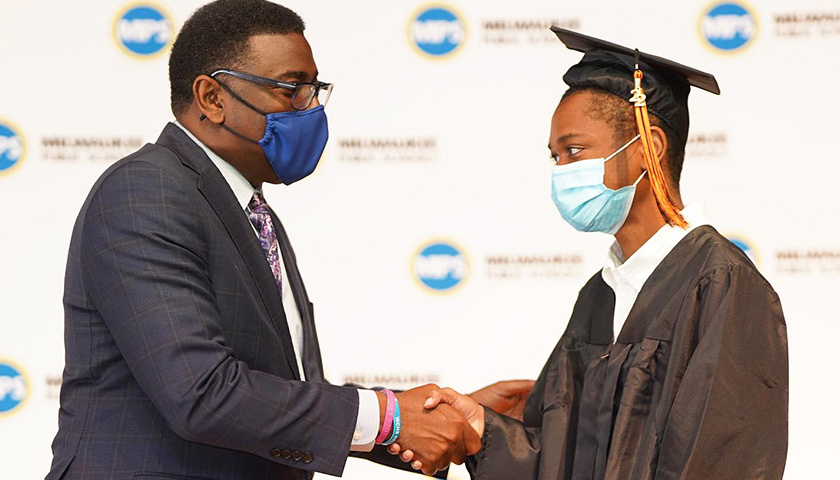by Eric Lendrum
After nearly two years of unprecedented lockdowns, mandates, and other restrictions on daily life during the COVID-19 pandemic, hundreds of thousands of graduating high school students are preparing to head off to college without having learned nearly as much as they should have.
The Associated Press reports that such students are about to enter college significantly farther behind the academic standards of previous years, almost entirely due to the pandemic’s forced transition to “online learning,” a shortage of teachers, and mask and vaccine mandates that disrupted school life for millions of students across the country. Such students risk the possibility of being grossly underprepared for the level of work required by college, and could result in a massive spike in college dropouts in the coming years.
This trend was described in detail by Allison Wagner, executive director of the group All-in Milwaukee, which hosts a scholarship program providing financial aid and counseling to low-income students. Wagner said that she had seen an unusually high number of students in their senior year of high school who were given permission to take time off of school just to work part-time jobs, including fast food restaurants or grocery stores. In addition, Wagner says that many students graduated high school without even taking a math or science class in their senior year, often due to there not being enough teachers.
“We have so many students who are going on to college academically malnourished,” Wagner explained. “There is no way they are going to be academically prepared for the rigor of college. The stakes are tremendously high.”
In response, some colleges have focused on building up “bridge” programs that include summer classes for newly-graduated students, ahead of the start of the regular academic year, in the hopes of easing such students into the much busier and more demanding lifestyle of college.
Some states have turned to spending federal pandemic relief funds on the creation of such programs; in Alabama, Wallace State Community College in Huntsville announced its own bridge program allowing students to take three weeks of lessons in math and English at a college level. However, despite the program’s planned maximum capacity of 140 students, a mere 10 actually signed up.
In Kentucky, colleges were given $3.5 million to build similar summer programs. Amanda Ellis, a vice president of the state’s Council on Postsecondary Education, said that such measures were necessary to ensure that the next generation of the workforce would not be harmed by a surge in college dropouts.
“We need these people to be our future workforce,” said Ellis, “and we need them to be successful.”
– – –
Eric Lendrum reports for American Greatness.
Photo “Alexander Hamilton High School Graduate” by Milwaukee Public Schools.




